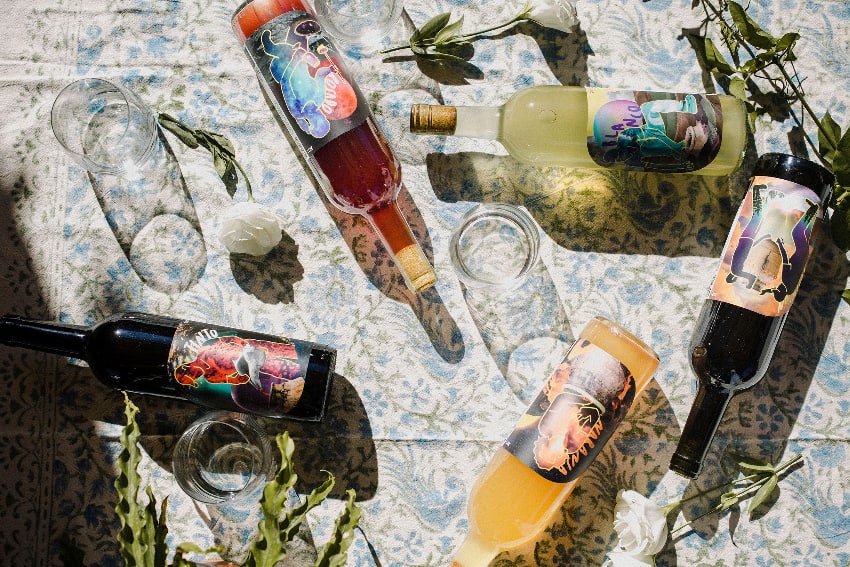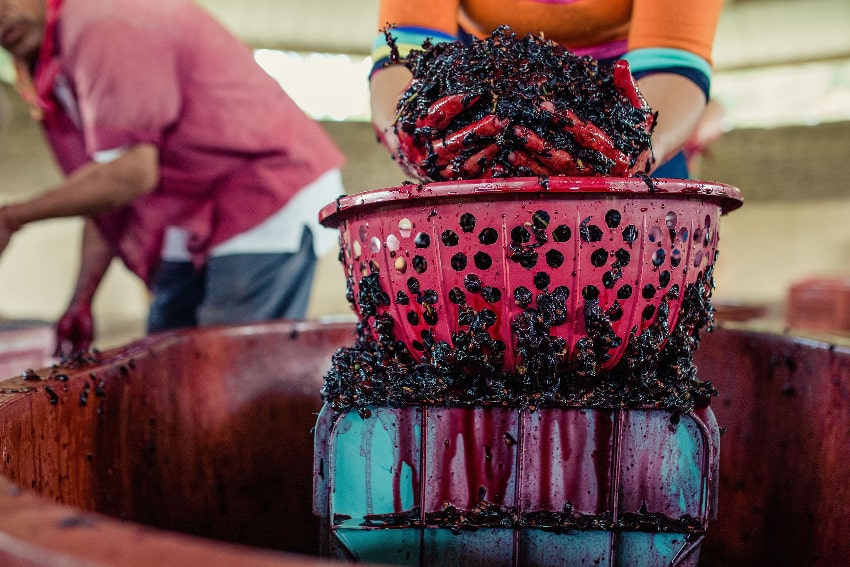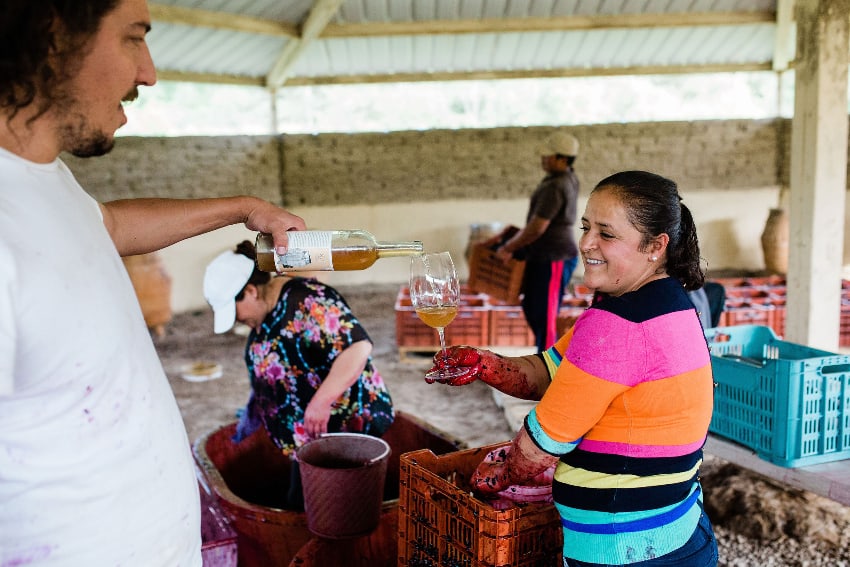Glasses clink and chatter echoes around the farm as the moon rises over a family gathering in Vergel de la Sierra, San Felipe, Guanajuato. A young Marcelo Castro Vera watches as his family toasts the Sunday night to a close. He enjoys the wine they are drinking, but what fascinates him is not the maroon “juice”, but how it has brought the people around him together.
Thirty years on and the very same landscape where a young Marcelo sat around a table with his family is now the birthplace of one of Mexico’s most exciting natural wines.

Founded in 2016, Octágono is a small winery that is ambitious, rebellious and fiercely honest. It’s located on the grounds of El Nidal, a shipping container hotel Marcelo built on his family’s land, and produces wines that are sharp, punchy and full of energy. Octágono’s wines embody the man behind the brand.
Many have called his process of making natural wine radical. His curiosity and inventive spirit saw him become the first contemporary Mexican winemaker to produce natural wine in buried clay amphora pots as it was made thousands of years ago in ancient Rome.
“The goal is to let the grape express itself with absolutely no human interpretation,” he says. “We use four basic processes executed without any technological intervention or machinery.”
Grapes are picked by hand and then smashed by foot. It’s “messy work and not glamorous,” Marcelo says. Pressing grapes by foot promotes wild fermentation, with no industrial yeast or sugars needed. The gloopy juice is then macerated in buried clay pots and hand-pressed with rustic utensils up to nine months later.

I ask whether his radical reputation is deserved. To me, it seems fueled by a rapidly evolving technological world in which insisting on creating a product without machinery is seen as “alien.”
Marcelo nods with a smile, but he sees himself more as a “rebel.”
“I think radical is too strong,” he says. “We do things differently here, and I believe we’re the first in Mexico to produce natural wine completely by hand. When we first started working on the idea to produce our own wine here, we talked for hours and hours about how we could ensure the product was natural and true to our belief that nature should do the majority of the work.”
“In our region, pottery is one of the most important local crafts,” he continues. “We talked about fermenting our wine in local pots, very similar to how Georgians use kvevris. That’s the path we went down, and I’m delighted about it. We use beautiful clay pots handmade by artisans from San Felipe and Dolores Hidalgo, which has helped bring more attention to another centuries-old craft.”

Blending ancient multicultural crafts with grapes grown in the fertile soil of central Mexico produces a collection of distinct natural wines which are undoubtedly Mexican, but infused with classical techniques from Europe.
I ask about his opinion of conventional modern wine in Mexico. A few weeks prior to our conversation, a Mexican white wine was crowned the highest-scoring “international revelation” at the Concours Mondiale de Bruxelles (CMB).
“I don’t drink conventional wine and so I can’t really judge it,” Marcelo says. “To me, it’s dead and boring compared to the energy and life of natural wine. There are thousands of conventional producers all following very similar guidelines on how to produce wine but only a fraction of them are creating natural wine. I don’t like to follow the crowd or be a sheep in anything I do. I’m only happy with my process when I’m going against the grain.”

Much like his wine, Marcelo is unfiltered. It seems to me that someone as punchy and determined as he is, lovingly dubbed the “crazy professor” by friends and family, needs a close team to help guide his creativity. He agrees.
“My wife, Mukasha is the most important person to me and for the business,” he says, “Our small success here is probably more down to her than me! She is smart, ambitious, creative. She also knows exactly when to tell me to keep my feet on the ground and not move in a bad direction.”
A professional photographer, Mukasha Dadajonova was born in Uzbekistan, the main wine-producing country in central Asia. She is also a firm advocate for fermenting wine in clay pots, a millennia-old technique used in nearby Georgia. The couple met while studying hospitality in Switzerland.

If Mukasha is Octágono’s compass, then Celia Morales steers the ship. As head sommelier, Celia handles the everyday demands of the winery, something all the more vital when you’re producing natural wine manually.
“We’re a small team, but we’re furiously committed to our values and making the wine we want to make,” Morales says. “We’re not people-pleasers but we love bringing people together to try our wine and food.”
Indeed, the brand’s 40-square meter tasting room, Tenerías #2, situated in the heart of cosmopolitan San Miguel de Allende, has become a very popular destination for locals, visitors and expats. Marcelo tells me it’s fully booked almost every day of the week.
Industrialization has no doubt increased efficiency, but at what cost? We’re on the cusp of a new generation of machine-learning, which will dramatically change our everyday working lives. Bucking technological progress may seem rebellious today, but people like Marcelo, Mukasha and Celia are playing a key role in conserving the best of tradition in a competitive, fast-moving world.
Gordon Cole-Schmidt is a public relations specialist and freelance journalist, advising and writing on companies and issues across multi-national communication programs.
